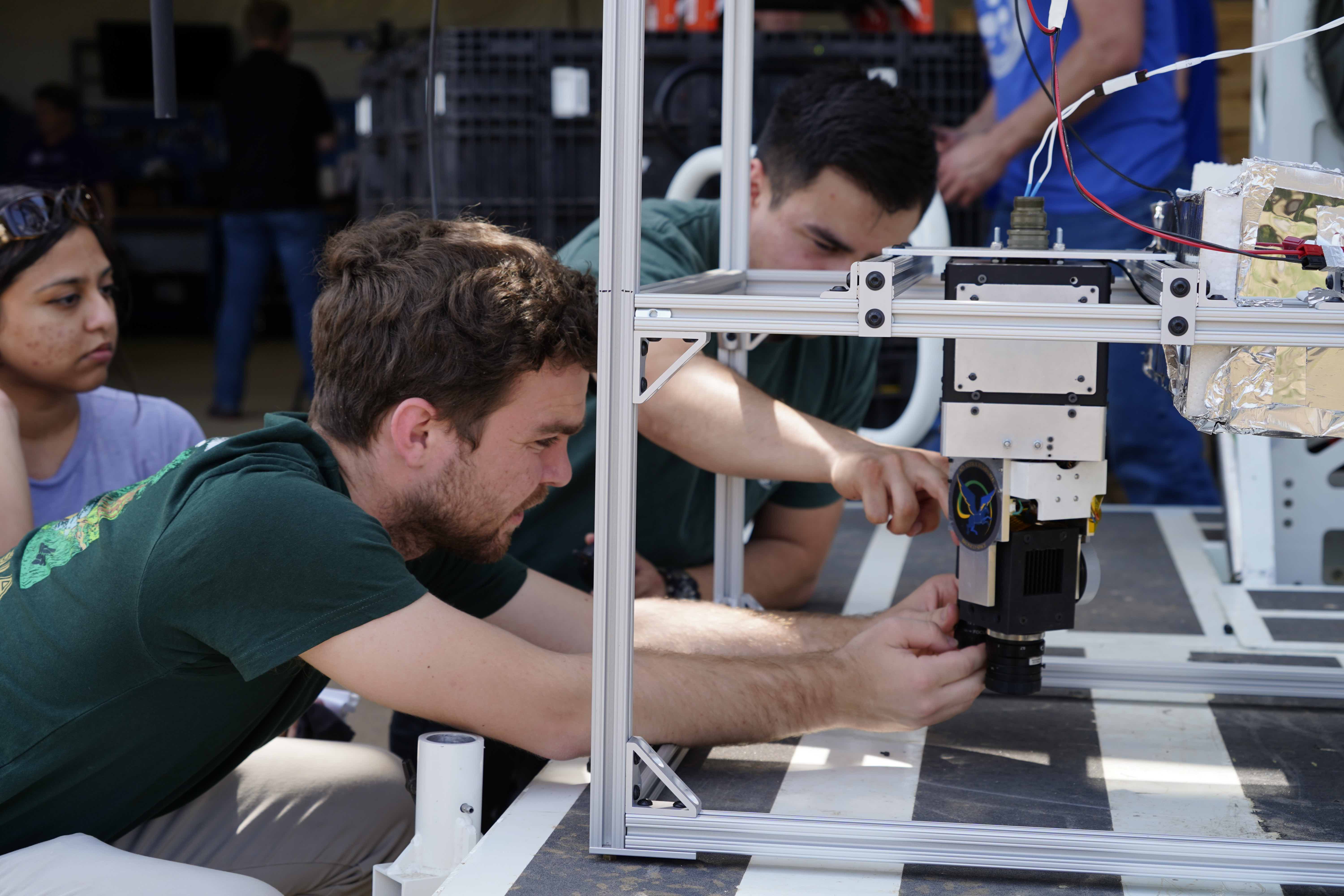NASA opportunities promote growth and entrepreneurship for Bronco Space Club students

NASA’s public competitions can spark big changes — not just for the agency, but for the participants too. Bronco Space, the CubeSat lab at California State Polytechnic University in Pomona, California, has not only advanced space technology by winning funding from NASA’s TechLeap Prize competition. It has grown from its beginnings in a broom closet to a newly built lab on campus, expanding its capacity to develop space technologies well into the future.
The TechLeap Prize aims to rapidly identify and develop space technologies through a series of challenges, each addressing a specific NASA and nation technology need. In addition to a cash prize, winners will receive access to a suborbital or orbital flight opportunity on a commercial flight platform. Bronco Space won $500,000 in the first TechLeap Prize, the Autonomous Observation Challenge, launched in 2021. The challenge sought technologies for small spacecraft that can autonomously detect, locate, track, and collect data on transient events on Earth and beyond. The team, comprised of both undergraduate and graduate students, developed and launched a wildfire detection system called Bronco Ember that uses a shortwave infrared camera with AI (artificial intelligence) to improve early wildfire detection.
Zachary Gaines was a student when he took part in TechLeap’s first challenge with Bronco Space. He has since graduated and now leads the lab at Cal Poly Pomona. Gaines points out that the award has given the team the flexibility to invest in their lab and expand the university’s technology development and maturation capabilities.
“Because TechLeap gave us a prize and not a grant, we had the freedom to invest those funds,” Gaines said. “If we want to make an impact in the real world, which we always want to do, we needed a real lab with equipment. Thanks to TechLeap, we now have space in an innovation village right off campus.”
In 2022, Gaines was also involved in Bronco Space’s second participation in TechLeap as part of the inaugural Nighttime Precision Landing Challenge. The competition sought sensor systems that can detect surface hazards from at least 250 meters above the ground and process the data in real time to create a terrain map suitable for safely landing a spacecraft in the dark. One of three winners who can each receive up to $650,000, Bronco Space developed a system using a light projector to create an initial geometry map for landing. The system then uses LIDAR (light detection and ranging) along with advances in computer vision, machine learning, robotics and computational engineering to create a map that reconstructs the lunar terrain.
Based on the experience with TechLeap, Gaines and other team members founded the small business Pegasus Intelligence and Space, now PRISM Intelligence, and entered another challenge – NASA’s Entrepreneurs Challenge. The competition focuses on developing and commercializing lunar payloads and climate science from an entrepreneurial and risk-taking perspective to advance the agency’s scientific exploration goals. The company’s technology, also called PRISM, is a 3D digital world map that uses artificial intelligence to make the “twin world” searchable. The challenge encouraged Gaines and the PRISM team to bridge the gap between available data and end users. PRISM was the winner of the second round of the challenge, receiving a portion of the $1 million prize and the opportunity to get exposure to external funders and investors.
Gaines attributes PRISM’s success to his first TechLeap experience: “The company would not have been possible without TechLeap. It helped me understand how to develop technologies for industry.”
The company and the university continue to secure NASA’s support. In December 2023, Cal Poly Pomona was selected for a two-year funded cooperative agreement under NASA’s University SmallSat Technology Partnership.
“When people invest in your ideas and continue to support them, they help you become smarter and improve your understanding of people’s needs,” Gaines said. “Developing technology with the goal of making a real impact in the world is really motivating.”



